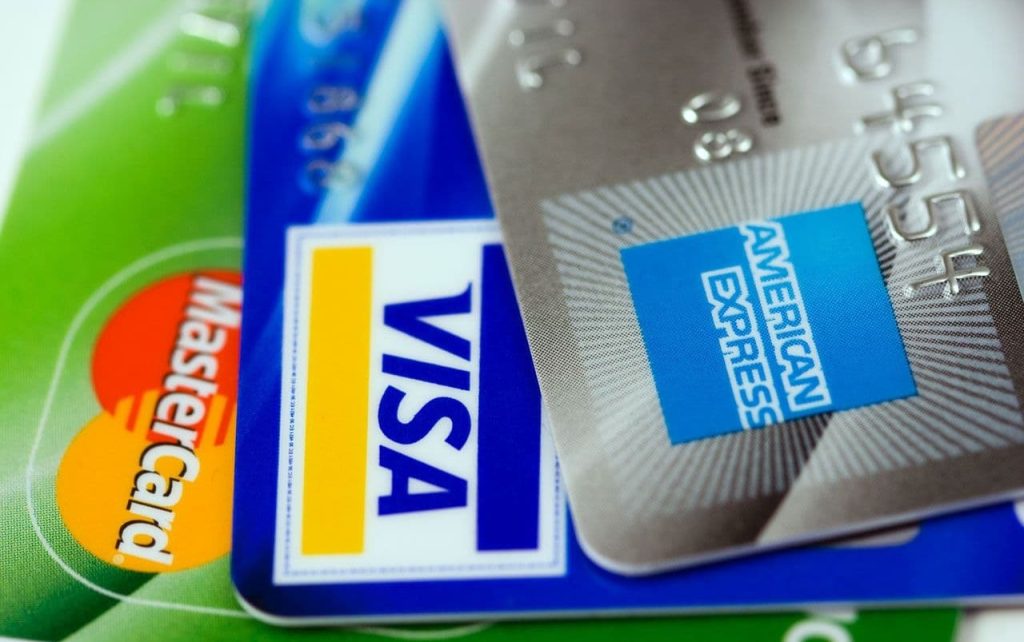Decisions, Decisions! What to Look for When Getting a Credit Card
According to YouGov data, 86 percent of Americans say they sometimes pay with a credit card.
Even if you pay for certain goods with cash, a credit card is a convenient and safe way to pay. Cards with chips have added security while many credit card companies also offer zero fraud liability. Plus, you can increase your credit score.
But if you’ve never had a credit card or you need to open a new account and you’re not sure where to start, the choices can be overwhelming. We discuss what to look for when getting a credit card to help you find the best choice for your needs.
Determine Your Needs
With so many credit cards to choose from, you might be wondering which one suits you best. So how do you choose between cash-back rewards, air miles, low-APR rates, or interest-free periods?
The first step is to figure out what you need the credit card for and how often you plan to use it. Start by asking yourself some questions. What do you need the credit card for?
Here are some examples:
- Unexpected expenses like medical or vet bills
- Booking a flight, cruise, or other vacation
- To increase your credit score
- Earning cash back or other rewards
- Free borrowing
- Credit score tracking
- Store discounts
- Fraud protection
- Everyday purchases
There are many reasons why people might want to open up a credit card. Decide why you need a card before applying to choose the best card for your needs.
Want to look at your options? Online comparison tools are a useful resource for comparing credit cards.
Credit Cards with Interest-Free Periods
Paying interest is one of the downsides of using a credit card. This is why interest-free cards appeal to so many people. These credit cards are good for two purposes: paying for large purchases and lowering high-interest balances.
Some of these interest-free credit cards are geared toward large, unexpected costs. For example, if you get into an accident and your insurance doesn’t cover as much of the bill as you hoped.
These cards usually have special financing plans. If you agree to pay off your debt with a short-term finance plan, you don’t pay interest. That doesn’t mean you can’t use these cards for smaller purchases, but the no-interest option only applies to purchases over a certain amount.
The second reason you might want this card is if you have a high-interest credit card with a lot of debt. Some credit cards have high-interest rates and you can wind up paying hundreds or thousands on interest alone.
Some credit cards mention balance transfers. This allows you to roll over your debt onto the new card and enjoy a period without interest.
What to Look for When Getting a Credit Card the First Time
If you’ve never had a credit card before, you might be wondering if you should open one up. While credit cards make it easy to fall into debt, they’re also the best way to improve your credit score.
You improve your credit score by putting small purchases on a credit card and paying them off right away. This proves you’re financially responsible and looks good during a credit check.
To avoid falling into debt, apply for cards with low credit limits. If you’re a student, you can apply for special student credit cards. These are cards for first-time credit card users.
Finding a Credit Card When You Have a Low Credit Score
You might be wondering how to pick a credit card when you have a low credit rating. Opening or applying for too many cards impacts your credit rating, so you want to pick the right one.
Having a high revolving balance hits your score hard. A revolving balance is the amount of unpaid debt on your credit card that winds up on the next billing cycle. In other words, your credit score suffers when you don’t pay off your debt.
If you’re struggling to manage debt, a high-interest rate might be part of the problem. Find a credit card with a high approval rate designed for balance transfers.
Remember, opening a new account affects your credit score as well so plan on paying off your debt as soon as you can.
The Best Credit Cards for Everyday Use
Do you plan on using your credit card for everyday purchases? If you use your card every day, you might as well start earning rewards and bonuses.
Some credit cards offer cash-back bonuses, special rewards, or other incentives. Cash-back cards return a small percentage of your spending back to you. Sometimes these cards have restrictions on which purchases earn you cash back, so read the fine print before applying.
Travel rewards credit cards are good choices for people that fly often. These cards earn you points or travel miles that you can redeem.
Consider the Fees and Other Penalties
When choosing the best credit card, always look at the fees and penalties. Your credit card company may raise the rates on you if you miss a payment.
Some cards have annual fees. This is a yearly fee usually between $25-500. Cards that have annual fees are usually rewards credit cards or secured cards.
Is a card with an annual fee worth it? That depends on whether the benefits that come with the credit card are worth it to you.
Most balance transfer credit cards have associated fees. Usually, this is between 3-5 percent of your total transfer. This card might be worth it depending on how much you save with an interest-free period.
You should also look at the ongoing APR rate before applying for a card. Many people have revolving debt and high-interest rates that add up. Try to find a card with a low APR or an interest-free period.
The Final Step Before Picking a Credit Card
Now that you know what to look for when getting a credit card, you can look at your options. Credit cards have a summary report with explanations of what the terms mean. Make sure to read this fine print before applying for a new credit card.
Looking for more financial advice? Browse our online toolkit for helpful resources designed to help you manage your finances.



